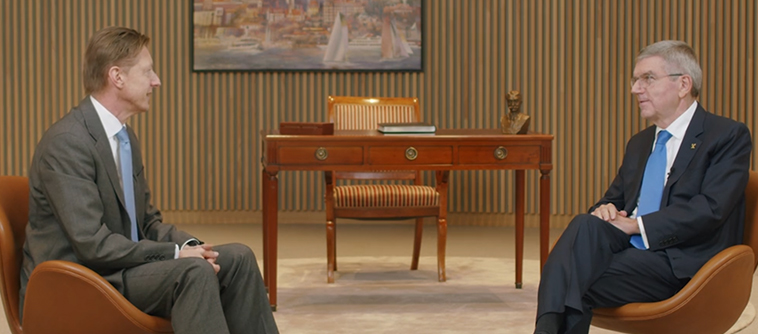Agility, dedication and resilience – these are the hallmarks of the athletes who participate in the Olympic Games.
But with COVID-19 causing unprecedented changes, delays and cancellations, the IOC is following the example of its premier players, aligning its mission with these core values to meet the many challenges facing sports – before, during and after the worldwide pandemic. The IOC – in the capable hands of their Executive Board – has had to stimulate governance, deftly manoeuvring to save not just the Olympic Games, but the world of sports as we know it.
In a recent episode of IMD Professor Didier Cossin’s High Performance Boards Conversation Series, Bach said the secret to keeping the flame of the Olympics alive is strengthening governance as a key driver of organizational decisions. As the glue that holds the organization together, the IOC’s Executive Board has implemented measures for accelerating decisions, increasing diversity and reducing doping – proving that keeping standards high and actions swift are its winning moves.
Agility is the key to effective board decision-making
Athletics is one industry that by nature demands physical presence. Yet as the pandemic took hold and the world turned from in-person meetings and events to those in virtual settings, the IOC had to decide if it was even possible to gather thousands of participants for competition safely.
“We managed to make maybe the most difficult decision the IOC has had in decades: to postpone the Olympic Games,” said Bach. “We started the procedure on a Sunday in an executive board meeting, and the following Tuesday I then had a conversation with Prime Minister Abe.”
It took just 40 minutes to make the decision to postpone the Olympic Games, but that was just the beginning of the decision-making process. Planning how to move forward is a mammoth task – and one without a clear blueprint.
The ability to make sound and swift decisions in such an unpredictable environment is made possible only by the flexibility of the IOC’s governance team. The executive board now meets virtually a minimum of once per month and the IOC now consults with member organizations in video conferences, just as it does with the international federations.
“We have regular calls with all the 206 National Olympic Committees and with the athlete representatives to keep them updated,” said Bach. “We even had the first-ever IOC virtual session of the general assembly – including elections – which went surprisingly well.”
Dedication to sports and to one another
According to Bach, this is in the DNA of international sports governance– a dedication made up of mutual respect and solidarity.
“What we say is, ‘respect is not enough’,” said Bach. “What you need to do is help each other, which requires solidarity.”
Thanks to this dedication to sports and to one another, the IOC is meeting today’s pandemic-related challenges, even as it has met others – notably doping and match-fixing. It has made the anti-doping system totally independent to avoid even the perception of conflict of interest, as well as by founding the International Testing Agency and making its services available to all the International Federations.
“I think the governance and the integrity of the IOC, thanks to the reforms of the Olympic agenda 2020, are now widely acknowledged,” said Bach. “And, in fact, we are acknowledged as the leader in the Olympic movement and in the sports movement.”
When it comes to match-fixing, IOC has also stepped up its game. It has close cooperation with many governments, Interpol and Europol as well as its own in-house anti-corruption unit. Bach continued: “With the UK government we have co-created an initiative called the International Partnership Against Corruption in Sport (IPACS), a multi-stakeholder platform with the mission of bringing together relevant stakeholders to strengthen and support efforts to eliminate corruption and promote a culture of good governance in and around sport.”
Resilience means rolling with the punches
With athletes and spectators alike rethinking travel and large events, no one knows exactly how the transformation of the Olympic Games will play out. But as athletes must rely on resiliency to see them through good games and bad, so must the IOC.
For athletes, the end game is everything. The IOC shares this sense of mission – and its end game is an ambitious one.
“We have to concentrate on our mission,” said Bach, “and our mission is to unify the entire world through sports.”
Watch this interview in full as well as other episodes in the High Performance Boards Conversation Series with IMD Professor of Governance Didier Cossin.


